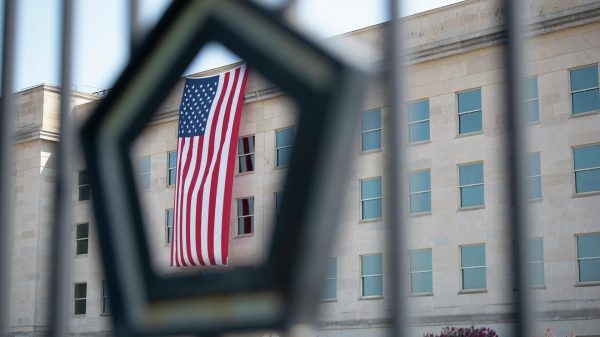Two former Conservative attorneys general and backbench MPs have branded the government’s threat to impose 10-year jail sentences on travellers who try to conceal journeys from coronavirus hotspots as disproportionate and an abuse of power.
Matt Hancock has announced a requirement for UK residents returning to England from 33 “red list” countries to pay £1,750 to quarantine for 10 days in government-designated hotels. The health secretary said on Tuesday those caught lying about their movements could be fined £10,000 or be jailed for 10 years.
The former attorney general Dominic Grieve said such a sentence was “entirely disproportionate”.
Speaking on BBC Radio 4’s Today programme, he said: “The government should not be abusing the powers it has taken through parliament for this emergency to create offences, which are subject to that kind of penalty.”
He added: “My view is that good government is about proportionality and sounding off in this way with suggestions of draconian and completely disproportionate sentences for an offence is a mistake.”
Grieve also predicted courts would not impose such sentences.
Sir Geoffrey Cox, who succeeded Grieve as Boris Johnson’s first attorney general, told the Telegraph: “I get that the secretary of state wants to show that this is serious but you do have to have regard to the overall balance of sentencing policy and law.”
Uk coronavirus cases
The former supreme court justice Lord Sumption said an offence of concealing previous travel should not be compared to those for violent or sexual crimes.
“Does Mr Hancock really think that non-disclosure of a visit to Portugal is worse than the large number of violent firearms offences or sexual offences involving minors, for which the maximum is seven years?” the peer wrote in the Telegraph.
Mark Harper, the chair of the Covid Recovery Group and a former chief whip of Tory MPs, said the plans should be put to parliamentary vote rather than be introduced by executive order.
Speaking on Talk Radio, he said: “I don’t think it would be right for imprisonable offences to be created by ministers by decree in advance without parliament having chance to debate and vote on them.”
He added the government was right to try to prevent dangerous variants spreading from overseas, but said “there have been some concerns about the level of the penalties”.
Steve Baker, a leading lockdown sceptic on the Conservative backbenches, said: “We are suppressing this virus at all costs and I really would implore ministers to take stock. At some point we are going to have to see reason and let temperance reassert itself.”
The shadow home secretary, Nick Thomas-Symonds, said he wanted to look at the detail of the government’s plans and that more information was needed to see if there was a scale within the 10-year sentence.
He added: “What we shouldn’t do either is allow the announcement of an eye-catching 10 years to be in some way a substitute for an effective quarantine system that works. It isn’t a substitute for that and it’s that that I urge the government to look at.”
The transport secretary, Grant Shapps, defended the plan, saying the British public “would expect pretty strong action”.
“It’s up to 10 years, it’s a tariff, it’s not necessarily how long somebody would go to prison for,” he told BBC Breakfast.
He added: “But I do think it is serious if people put others in danger by deliberately misleading and saying that you weren’t in Brazil or South Africa, or one of the red list countries, which as you say does include Portugal.
“But I think the British public would expect pretty strong action because we’re not talking now just about, ‘oh there’s a lot of coronavirus in that country and you might bring some more of it back when we already have plenty of it here’.
“What we’re talking about now are the mutations, the variants, and that is a different matter, because we don’t want to be in a situation where we later on discover that there’s a problem with vaccines.”

























































Свежие комментарии